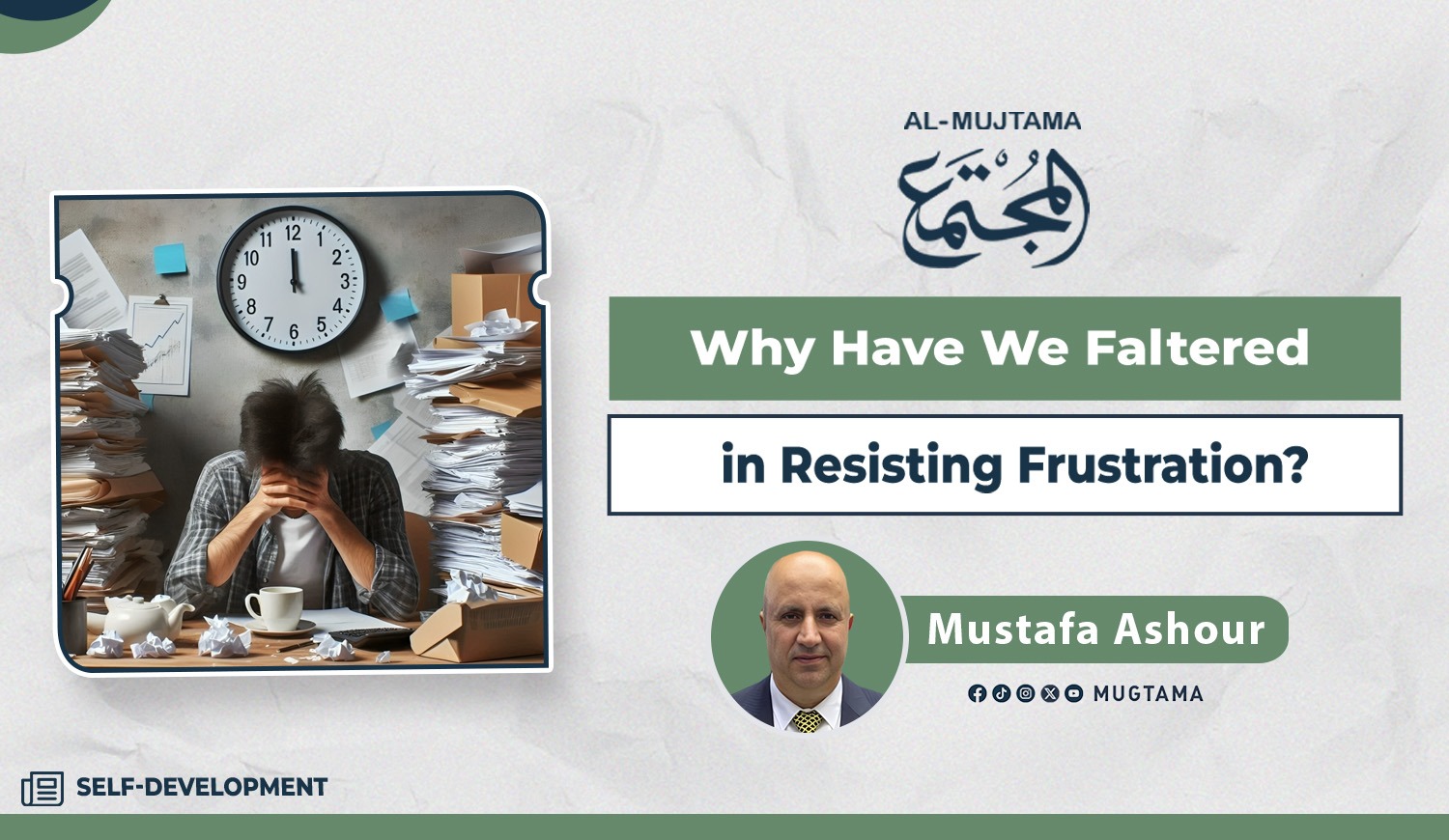Why Have We Faltered in Resisting Frustration?

Reports from the World Health Organization
indicate that about 3.8% of people suffer from depression — meaning nearly 300
million individuals around the world live with this condition, which causes sadness, loss of interest, and
isolation, and may even drive some to the brink of despair. Every year, more
than 700,000 people die by suicide, making it the fourth leading cause of death
globally.
The reality is that the sense of
frustration and loss of happiness afflicting modern humans lies behind the
rising rates of mental illness, depression, and suicide. The 2024 World
Happiness Report shows that young people today are less happy than previous
generations. Feelings of inadequacy, widespread social and economic pressures,
the constant comparisons, lack of free time, and excessive use of social media
all contribute to this psychological fragility.
This raises an important question: why have
we become so weak in facing the disappointments of life? Why are young people
today more fragile when dealing with life’s ordinary ups and downs? Why has
isolation, depression, or despair become the alternative response to
challenges?
Don’t Close the Door
“Whatever happens to you, don’t fall into
despair! Even if all doors close, a secret path will appear that no one knows —
there is hope after despair, and many suns after the darkness.” So say the
wise, who see frustration as nothing more than the defeat of will in the face
of trials and setbacks.
Psychologists define frustration as “a
feeling that arises when challenges block the achievement of goals or
aspirations.” Undoubtedly, many of us have faced obstacles in life that
prevented us from reaching our goals — a failure in a moment filled with certainty
of success, or hope slipping away just before reaching the finish line.
Yet the difference lies in how people
respond: some see failure as a chance to reassess themselves, find better means
to reach their goal, or even pursue a new purpose altogether. Others, however,
let frustration crush them, allowing despair to seep in and destroy their
spirit — and that is a true tragedy.
But why do we
struggle to resist frustration?
In truth, mental strength resembles
physical strength: some aspects are innate — a gift from Allah, such as being
born healthy or having strong immunity — while others are acquired through
social environment, training, and gradual growth over time.
In life, we often notice that some people
give up easily. They complain about everything, rush everything, and lack
patience for things to mature. Impatience governs their character and behavior;
when they start something, they rarely see it through.
Such a spirit must be trained and
disciplined in patience. As narrated in Sahih al-Bukhari and Muslim:
“Whoever
tries to be patient, Allah will give him patience.” This
means that resisting frustration stems from one’s will — when a person chooses
endurance and self-control, his inner self prepares for it and refuses to
surrender to defeat.
Psychological studies indicate that
tolerance for frustration is a key component of mental health. A person with
psychological resilience in the face of crises and failures is likely to enjoy
better mental and physical well-being. Part of this resilience is built
gradually through experience and practice.
Studies also show that those who learn to
handle setbacks and failures are more likely to persist in achieving their
goals. The great inventor Thomas Edison, for instance, conducted hundreds of
failed experiments before succeeding. He famously said, “I have not failed.
I’ve just found 10,000 ways that won’t work.” This reflects the truth that our
minds hold the keys to either surrendering to or resisting frustration.
Similarly, James Dyson — the inventor of
the bagless vacuum cleaner — performed 5,126 experiments before succeeding. He
did not allow frustration to consume him and eventually became a billionaire,
earning around $4.6 billion. He later said that he still embraces risk and the
possibility of failure as part of the process. One of the signs of weak
resilience is giving up quickly when faced with obstacles.
The Strategy of
Emotion Regulation
Psychological research shows that resisting
frustration is closely linked to a person’s beliefs and values, which shape
one’s inner strength or fragility. Some people believe that life should be
easy, free of pain and problems, and meant only for enjoyment without
responsibility. Such a spoiled mindset leads to quicker frustration, rooted in
unrealistic expectations that govern their behavior.
This “expectation gap” is especially common
among young people compared to the elderly. Research from fifteen years ago
found that older adults cope better with life’s fluctuations. Wisdom often
grows with years and experience — as the wise say, “Expect unexpected visitors:
joy, sorrow, and hardship.”
One of the causes of poor frustration
tolerance is unrealistic expectations. When someone anticipates great success,
extraordinary support from loved ones, or huge profits from a deal — only to be
met with the opposite — it triggers a psychological crisis. Hence, the Prophet (peace
be upon him) advised in the hadith narrated by Abu Dawud
and authenticated by Al-Albani: “Love your beloved moderately, for he may
become your enemy one day; and hate your enemy moderately, for he may become
your beloved one day.”
Research in mental health shows that the
ability to accept negative events and thoughts is directly linked to better
psychological well-being. Unrealistic expectations only fuel frustration.
Psychologists have thus developed what is
known as the “emotion regulation strategy” — a way to strengthen mental
resilience and foster balance in facing life’s hardships. It involves
cognitive, emotional, and behavioral processes — starting with accepting
negative emotions as a natural part of life and seeking meaning or lessons in
painful experiences.
Studies further show that when we accept
our thoughts and feelings instead of fighting them, they fade more quickly and
cause less distress. In other words, not fighting them means accepting them.
People who are more inclined to accept their emotional experiences generally
enjoy better mental and physical health.
-------------------------------------------------------------
Read Also:
-
Islam... A Cry Against Suicide











